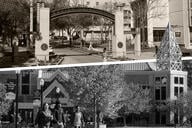You have /5 articles left.
Sign up for a free account or log in.
The Kentucky Supreme Court ruled Thursday that the state could not spend $10 million to build a pharmacy school at the University of the Cumberlands, a Baptist institution, because doing so would violate the state Constitution's ban on support for religious institutions. The university responded by announcing that it was calling off plans to create the pharmacy school.
The Kentucky court came down strongly against state support for a religious college at a time when other courts have made it easier for such government aid. And the decision marked an unusual endpoint to the university's decision in 2006 to expel a student for being gay. That expulsion led the Kentucky Fairness Alliance, a gay rights group, to take a closer look at the university -- and to challenge lawmakers' subsequent decision to support a pharmacy school there.
Jody Cofer, a board member of the alliance, said in an interview Thursday that she felt that the Supreme Court's action had brought some justice to the university's dealings with the state. She said she recognized that, as a religious institution, Cumberlands had the legal right to kick out gay students. But she said that when the university tried to get state money, it went too far.
"It's totally fine for a private religion-based school to admit or deny whoever they want, but they cannot act that way with state dollars," she said. "That's state-sponsored discrimination." If Cumberlands wants to discriminate, she said, it can't at the same time expect state funds.
"I feel really good about what happened," Cofer added. She said that the group had not previously focused on church-state issues. "The horrific experience Jason [the expelled student] went through is what put this on our radar."
The university declined to comment except to release a short statement saying that it was abandoning the plans for the pharmacy school. A spokeswoman declined to say whether the university bars gay students today, or to talk about the university's position on gay students. But the student handbook states: "Any student who engages in or promotes sexual behavior not consistent with Christian principles (including sex outside marriage and homosexuality) may be suspended or asked to withdraw from University of the Cumberlands."
The Supreme Court's ruling was straightforward. Cumberlands is affiliated with the Kentucky Baptist Convention, and has never tried to deny that it is a religious institution. And Kentucky's Constitution, the court noted, states that "no portion of any fund or tax now existing, or that may hereafter be raised or levied for educational purposes, shall be appropriated to, or used by, or in aid of, any church, sectarian or denominational school."
Supporters of the idea of having the state pay for the pharmacy school argued that it would not be religious in nature, and also that because the pharmacy school was designed to deal with health issues, it need not be considered an educational institution. But the court didn't seem terribly impressed with that line of reasoning.
"How can an appropriation to construct a pharmacy school not entail an educational purpose? What could the construction of a building possibly accomplish in addressing the alleged shortage of pharmacists in the Commonwealth unless faculty are retained and students are then recruited and educated in a manner that will enable them to pass the requisite professional licensing examinations?" the decision asked. "The $10 million
appropriation is for bricks and mortar but its ultimate purpose is to provide a venue for the education of pharmacy students."




